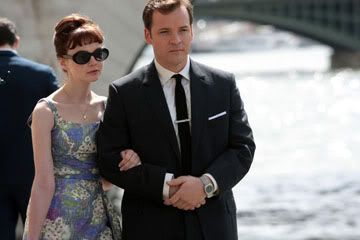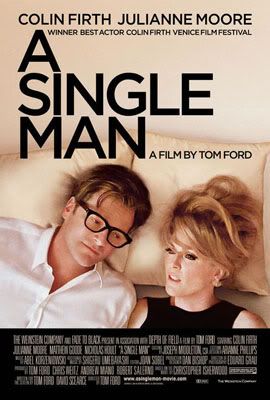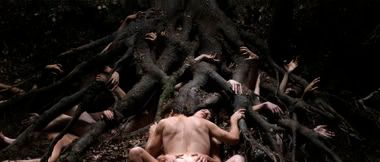An Education


It's 1961 in London just before the grooviness and sexual liberation age of The Beatles hit and right around the time post-war cautious conservatism was still lingering. Jenny (Carey Mulligan) is a 16-year-old girl, straight-A cello-playing student living in a tidy suburb of London, Twickenham. She is aspiring to attend Oxford, but she is also bored to death. And then enters David (Peter Sarsgaard), a man in his early 30s who promises not only something new but simply for something to happen, the feeling of being alive. Danish director Lone Scherfig ("Italian for Beginners") is careful not to let her new film, "An Education," fall into the conventional holes it easily could've with such a premise. With writer Nick Hornby ("About a Boy," "High Fidelity"), they have taken the memoir by British journalist Lynn Barber and shaped it into a smart, quiet, and charming coming-of-age story that sparkles with the knowledge and detail of an era. It shows a social revolution not yet in the making but one in the distant horizon, and one that Jenny is ready to grasp with open arms.
David comes driving up in the pouring rain offering to put Jenny's cello in the backseat so it wouldn't get any wetter. They begin a conversation about classical music, and it's in this exact moment that we realize what a smooth and suave guy David is. He's reasonably handsome, but most of all, he knows how to turn on the charm, and in that sense he becomes irresistible. They just so happen to bump into each other again, and David invites her for a night out. Jenny meets David's fabulous and cultured friends, Danny (Dominic Cooper) and Helen (Rosamund Pike), and next thing she knows she's caught in a whirlwind of concerts, restaurants, jazz clubs, and the leisure of high-living. David wants to take her on a weekend in Oxford and then a trip to Paris.
How are the parents of a 16-year-old handling all of this? Well, they become just as disillusioned as Jenny. Her mom (Cara Seymour) and dad (Alfred Molina) are an old-fashioned couple who want the best for their daughter, and they are very loving about it. When David enters their home well-dressed and well-mannered, they can't find the harm in him. They are naive just like Jenny. How he explains his interest in Jenny is that he's interested in her mind, intellect, maturity, and potential. He wants to teach her things, and Jenny's parents view it as an older gentleman assisting her daughter in the real-world, an opportunity neither of them can pass up. Paris is safe because, well, David's aunt will be there chaperoning, of course. It's a little white lie, the type of lies David is filled with, but ones so minuscule they are never harmful. You see, David is a bit of a scoundrel, but the film is keen on not letting audiences aware of that until later, right about the time Jenny starts to realize it. And yet, she goes along with him still because, even when she sees through him, she wants to continue playing along to become a part of that lifestyle. She wants to embrace it in order to become it.
Then there's the possibility of sex. On her seventeenth birthday, David sweeps Jenny off her feet, but it turns out sex was the least of it. "All that poetry about something that lasts no time at all," Jenny said after the fact. Peter Sarsgaard and Carey Mulligan pull off the unthinkable by making this seemingly off-putting relationship one that is believable and unsentimental in the truths it reveals. Sarsgaard strikes the perfect balance amongst a tricky role by becoming a slippery snake of a predator while also being sweet and nonchalant. And he makes a perfect duo with Mulligan whose look is reminiscent of Audrey Hepburn. She is absolutely breathtaking and worthy of an Oscar nomination. Everything she does we have faith in her decisions, even if it doesn't seem right at the time, because she has the ability to get us on her side. She's the epitomical lovable character.
Along the way, Jenny is confronted by her young teacher (Olivia Williams) when Jenny starts becoming the talk of the school as she's courted by an older man. This teacher is concerned for Jenny potentially throwing away the possibilities of her bright future. There's also vicious disapproval from the headmistress, played by Emma Thompson in a fiery passion. There are two strands of education here: one that gets a young girl into Oxford and one that teaches a young girl a thing a two about life and living. And while both are important, it would appear that one in particular gives Jenny a certain edge. This is a lesson, an education, that'll stick with her because sometimes the lessons that hurt you the most affect you the greatest. Yes, of course Jenny's been to Paris before, but the boys her own age don't need to know that.










